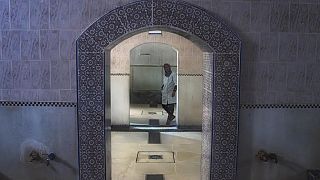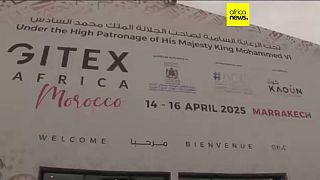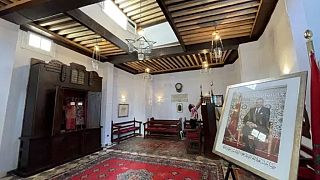Morocco
Eid Al-Adha is fast approaching, and like Muslims all over the world, many Moroccans will sacrifice an animal as part of the festivities.
A drought has however reduced the amount of food available for flock.
The state is accustomed to supporting farmers and would give them two bags of fodder. This year Wahid Redouane's farm was supplied with 30 and it wasn't enough still.
"Due to drought, we are sometimes forced to sell sheep in order to get money to buy fodder for the other remaining sheep. This has caused prices to rise in the market, because we sell a number of sheep in order to control the situation and in order to preserve capital only."
At a local market in Berrechid, northwestern Morocco, sheep are on sale ahead of Eid.
Prices have been rising for several years, but it's more noticeable than ever now.
Moroccan sheep cost between 73 and 83 Dirhams (6.83 to 9.03 dollars) per kilogram. That means the average sheep costs up to 160 dollars more than it did last year.
Sellers are now looking to Spain where they can get sheep at more affordable prices.
"Moroccans could not manage the high prices of Moroccan sheep during their tours in the markets. That is why they were forced to buy Spanish sheep because their price is reasonable and may reach 67 dirhams (7.29 euros) per kilogram," says Lehcen Ziate, a sheep seller in Berrechid.
Adapting to the climate crisis
Morocco has imported 600,000 Spanish sheep so far this year according to the Agriculture Ministry.
Customers want the best looking, best quality sheep they can afford for their families.
But many are shocked by just how much that's going to cost them.
"The atmosphere is different this year. During my tour of the markets in the city of Berrechid, I noticed that prices have risen, but they differ from one market to another and also according to the quality of the sheep," says local resident Abdelghani Chihab.
Experts fear the problem is only likely to get worse.
READ ALSO: African Development Bank invests billions in climate change adaptation
What will customers do five, ten years from now if prices continue to spiral?
There are calls for major changes to help farmers adapt to the consequences of the climate crisis.
"Successive periods of drought will continue during the coming years, which will put Morocco in a crisis in terms of preserving its stock of livestock, and this requires it to turn to modern livestock breeding," says Mustapha Benramel, an environment expert and president of the Minaretes Ecological Association for Development and Climate, based in Kenitra.
Eid al-Adha will begin in Morocco on 17 June.











Go to video
Exhibition in Morocco explores a world of color
01:36
Migration and refugee policies key to economic growth, Say UN and IMF experts
Go to video
The EU moves to fast-track asylum claims by migrants from 7 countries to speed deportation
Go to video
Foreigners face gold trading ban in Ghana beginning May 1
00:50
Spain: human trafficking ring smuggling moroccans into europe dismantled
Go to video
France and Algeria resume diplomatic talks aimed at mending rift